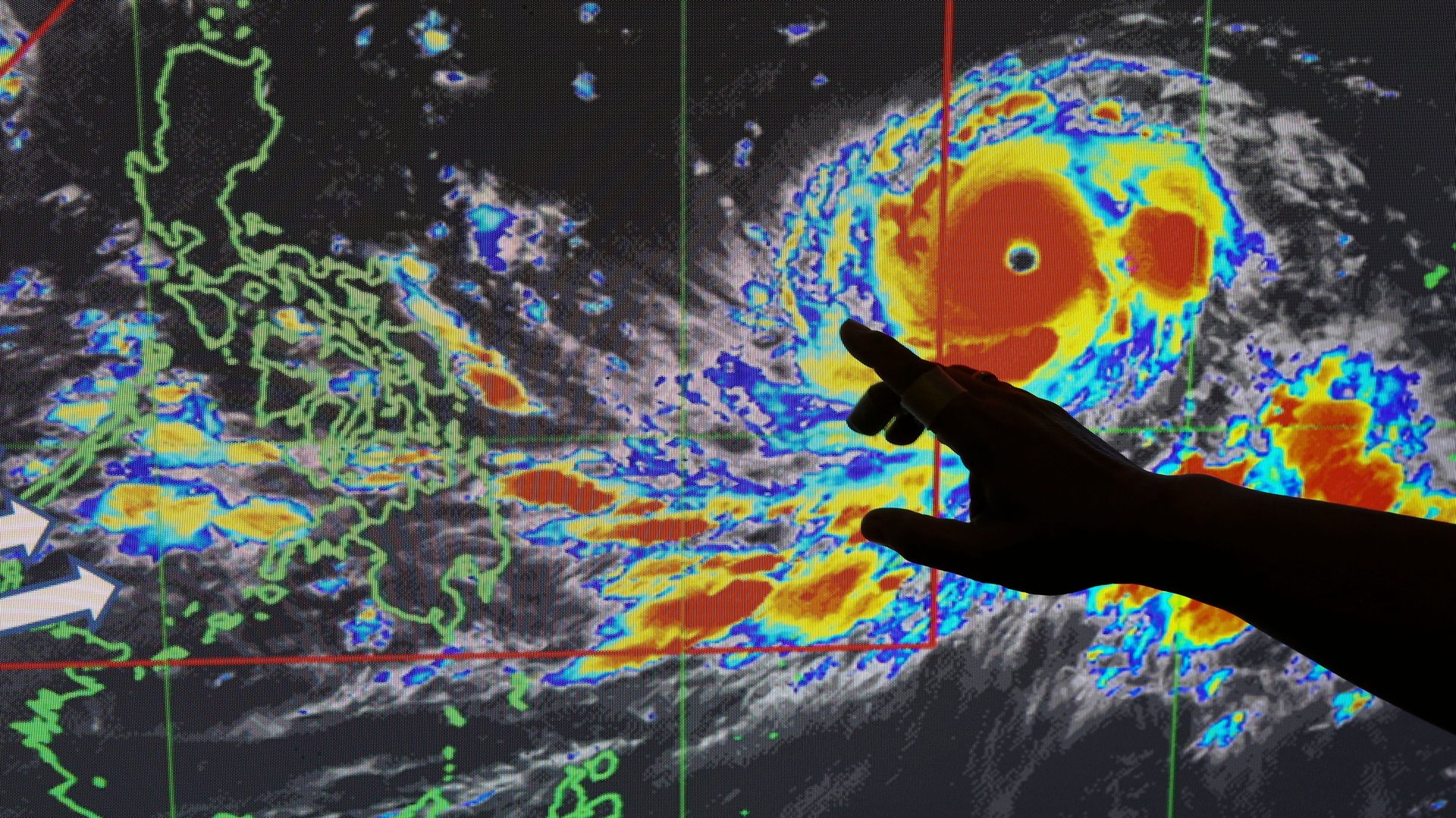A super typhoon stronger than Hurricane Florence is raging across Asia
Storms are brewing all over the world, but Super Typhoon Mangkhut is the most intense tropical cyclone of them all. While Hurricane Florence charges towards the US east coast (and North Carolina’s pig manure lagoons), Mangkhut has already caused flooding and power outages in Guam, and is set to sweep by Luzon, Philippines before heading toward Hong Kong and Macau. The storm could affect as many as 43.3 million people, according to the Global Disaster and Alert Coordination System.


Storms are brewing all over the world, but Super Typhoon Mangkhut is the most intense tropical cyclone of them all. While Hurricane Florence charges towards the US east coast (and North Carolina’s pig manure lagoons), Mangkhut has already caused flooding and power outages in Guam, and is set to sweep by Luzon, Philippines before heading toward Hong Kong and Macau. The storm could affect as many as 43.3 million people, according to the Global Disaster and Alert Coordination System.
Also known as Super Typhoon Ompong in the Philippines, Mangkhut has winds of at least 157 mph, which makes it equivalent to a category 5 Atlantic hurricane, although it is expected to weaken to a category 4 before it reaches Hong Kong and Macau. As of Wednesday (Sept. 12), Florence had maximum winds of 125mph and dipped to a category 3, but an abrupt jump in strength is possible.
In addition to the risk of floods, landslides, and huge waves, Mangkhut will also lay waste to valuable farmland when it passes Luzon. According to Bloomberg, Philippines agriculture secretary Emmanuel Pinol warned that the storm could cause up to 13.5 billion pesos ($25 million) in damage to crops, just as harvests are nearing.
Hong Kong is also bracing itself for what may be the most powerful storm to ever hit the city. Queenie Lam Ching-chi, a senior scientific officer at the Hong Kong Observatory, told the South China Morning Post that even though there is a chance Mangkut’s path will change, “It can constitute a great danger to Hong Kong.”
It might be hurricane season, but the number of storms concurrently growing is unusual and unsettling, especially in the wake of last week’s deadly Typhoon Jebi in Japan. “Seemingly overnight, the oceans are exploding with tropical cyclone activity,” The Washington Post noted. If all the storm systems continue to build, there’s a possibility of five simultaneous cyclones, a global weather event that’s only happened once before.
While climate change can’t be blamed for all these hurricanes, warming ocean waters do affect their intensity, which means future storms will likely continue to be as powerful as Florence and Mangkhut. As Katherine Foley writes for Quartz, “Climate change is like a dial that can be turned up or down to increase its influence on hurricanes. At this point, it appears that human activity has been turning the dial up.”